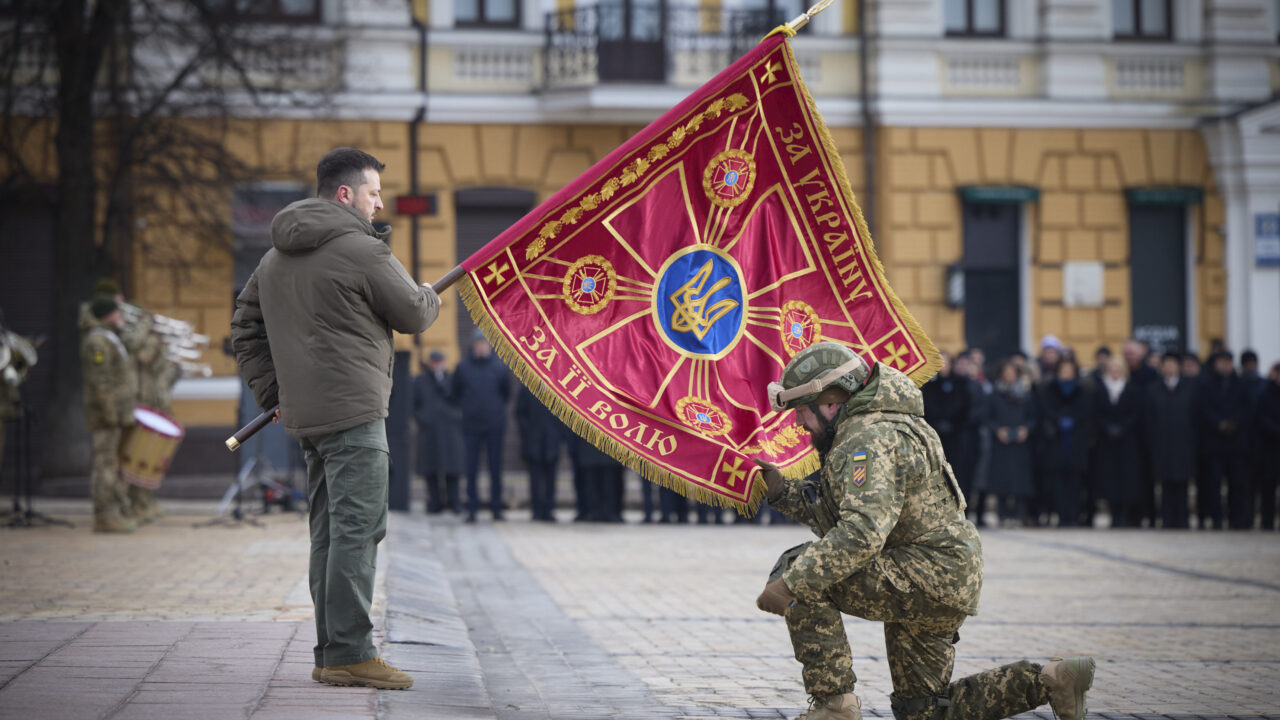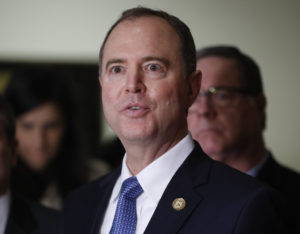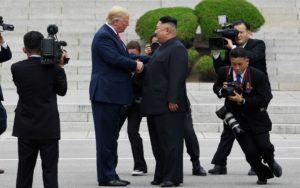A Year of Many Kinds of Invasions
From U.S. war profiteering to GOP "Ukraine maximalists," there are many aspects of the conflict to focus on. Ukrainian President Volodymyr Zelenskyy holds the flag of a military unit as an officer kisses it, during an event on commemorating the Russia-Ukraine war's one year anniversary in Kyiv, Ukraine, Friday, Feb. 24, 2023. (Ukrainian Presidential Press Office via AP)
Ukrainian President Volodymyr Zelenskyy holds the flag of a military unit as an officer kisses it, during an event on commemorating the Russia-Ukraine war's one year anniversary in Kyiv, Ukraine, Friday, Feb. 24, 2023. (Ukrainian Presidential Press Office via AP)
Via Responsible Statecraft
To mark the anniversary of Russia’s invasion of Ukraine, the Quincy Institute’s Responsible Statecraft is publishing a weeklong series exploring different aspects of the conflict and including views not often represented in the mainstream media.
In one of today’s featured articles, Georgetown University professor and Obama administration veteran Charles A. Kupchan calls for the U.S.-West “to prepare for a diplomatic endgame”:
A year into the conflict, Russia’s brutal effort to subjugate Ukraine has been a stunning failure. Moscow launched its “special military operation” in order to pull Ukraine back into its sphere of influence. Instead, the invasion and the death and destruction it has caused have irreversibly alienated and angered the vast majority of Ukrainians. Russia, of its own doing, has lost Ukraine for good.
Even if this war ends with Russia in control of at least some piece of Ukrainian territory, the conflict will go down in history as an enormous strategic blunder and historic setback for Russia. President Vladimir Putin’s deluded effort to flex Russia’s imperial muscle has left his country irreversibly weakened. Russia is diplomatically and economically isolated, suffering grievous losses on the battlefield and diminished in the eyes of the world.
Nonetheless, this war is far from over — and year two may not play out as well for Ukraine as year one. As Ukraine and its Western supporters seek to build on their successes, they should embark on year two determined to continue the fight — but also ready to marry efforts on the battlefield to a diplomatic strategy aimed at bringing the war to a close sooner rather than later.
Kupchan’s piece extends the weeklong series’ examination of the war from a variety of angles that provide a broad understanding of the economic, political and geopolitical dynamics at play in the war. In “War is great for the portfolio, as defense stocks enjoy a banner year,” Quincy Institute senior advisor Eli Clifton looks at how the top five U.S. weapons firms outperformed major Wall Street indexes last year, mostly on the backs of arms shipments to Ukraine paid for by American taxpayers:
In January 2022, Raytheon CEO Greg Hayes told investors that global instability presented a profit opportunity for his weapons firm. “[W]e are seeing, I would say, opportunities for international sales,” said Hayes, citing, among other global events, “tensions in Eastern Europe.” He went on to add, “All of those things are putting pressure on some of the defense spending over there. So I fully expect we’re going to see some benefit from it.“
The big five weapons firms have achieved impressive stock growth since Russia’s invasion, dramatically outperforming the major indexes. Shares in Lockheed Martin, Raytheon, Boeing, Northrop Grumman and General Dynamics appreciated in value 12.78% on average in the one-year span since the day before the Russian Feb. 24 invasion last year until the close of financial markets on Thursday.
William Ruger explored the GOP’s internecine fighting and muddled approach to the war in yesterday’s piece, “‘Ukraine maximalists’ on the Right still dominate. But for how long?” Ruger, who serves as the president of the American Institute for Economic Research, writes:
Old assumptions and theories about the nature of the world that had dominated during the Cold War became fixed and hardened in the minds of the foreign policy establishment. Rather than a time of rethinking, our Cold War approach was put on steroids. Elites served up a variety of rationales, first the problem of rogue states, followed by global terrorism and the responsibility to protect and now great power competition. Unsurprisingly, the strategy (and budgets) for each of these problems were similar: primacy.
Unfortunately for America, something not very funny happened on the way to the imperial forum. We kept getting frustrated or worse, whether in Somalia, Iraq, Afghanistan, Libya and many other places across the globe. The world simply wouldn’t conform to our desires. This put primacy in trouble as more and more people — including one Donald Trump — questioned whether it was good for America. They wondered whether a different, more restrained approach might be better. They eventually came to support the end of our misadventures in the Middle East, and U.S. withdrawal from the war in Afghanistan in 2021 suggested a new future for American foreign policy.
Then the Russia-Ukraine War began, one year ago.
Read the full series at Responsible Statecraft.
Your support matters…Independent journalism is under threat and overshadowed by heavily funded mainstream media.
You can help level the playing field. Become a member.
Your tax-deductible contribution keeps us digging beneath the headlines to give you thought-provoking, investigative reporting and analysis that unearths what's really happening- without compromise.
Give today to support our courageous, independent journalists.





You need to be a supporter to comment.
There are currently no responses to this article.
Be the first to respond.